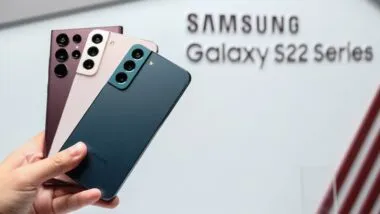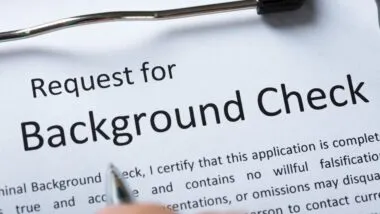 A federal judge has denied Ford Motor Co.’s request to dismiss implied warranty claims from a consumer class action lawsuit alleging the power steering system in some Ford cars is prone to failure.
A federal judge has denied Ford Motor Co.’s request to dismiss implied warranty claims from a consumer class action lawsuit alleging the power steering system in some Ford cars is prone to failure.
U.S. District Judge Lucy H. Koh determined that plaintiffs had not brought their implied warranty claims too late, as Ford had argued. The judge held that California law governing implied warranty claims did not require a consumer to discover a latent defect and report it to the seller within one year.
Judge Koh found that per the plaintiffs’ allegations, the defects in the Ford power steering system existed at the time of purchase, making the cars “unmerchantable” within the applicable one-year period.
The plaintiffs added these implied warranty claims in their third amended complaint, after a few rounds of dismissals and amendments to their pleadings. The new claims arise under the California Song-Beverly Act and the federal Magnuson-Moss Warranty Act.
Ford argued that two prior court cases construing the Song-Beverly Act required the plaintiffs to discover the latent defect at issue within one year of purchase of the product. Plaintiffs in the current case were trying to sue after the one-year duration period, Ford argued.
Judge Koh disagreed. She said that argument was not consistent with the two court cases referenced, Mexia and Daniel. She noted that in Mexia, the court expressly rejected the argument that a latent defect had to be discovered and reported within the one-year warranty period. And Daniel allowed highly similar claims to continue, also addressing alleged defects in Ford cars, the judge noted.
The judge also rejected Ford’s argument that the plaintiffs had waived their implied warranty claims by failing to raise them in their second amended complaint.
The power steering system at issue is known as the EPAS system, or Electronic Power Assisted Steering system. Instead of using a traditional hydraulic pump to provide power steering assistance, the EPAS system uses electronic sensors and a motor.
According to the lawsuit, this system has a defect that causes it to fail during ordinary driving conditions. All three plaintiffs allege they experienced problems with the EPAS systems in their own Ford vehicles.
Plaintiffs claim Ford installed this system in certain Ford Fusions from model years 2010 through 2014 and in certain Ford Focuses from model years 2012 through 2014.
In an earlier attempt to get the lawsuit dismissed, Ford argued that the National Highway Traffic and Safety Administration had taken jurisdiction over the issue by issuing a recall of the power steering systems in question. Judge Koh rejected that argument as well, noting that the remedy consumers could get from the class action lawsuit was not the same as what they could get through the recall process.
The plaintiffs are represented by Roland Tellis and Mark Pifko of Baron & Budd PC; Adam J. Levitt, John E. Tangren and Mary S. Thomas of Grant & Eisenhofer PA; and Niall A. Paul and Nathan B. Atkinson of Spilman Thomas & Battle PLLC.
The Ford Power Steering Defect Class Action Lawsuit is Philips, et al. v. Ford Motor Co., Case No. 14-CV-02989, in the U.S. District Court for the Northern District of California.
UPDATE: On Sept. 19, 2016, Ford opposed class certification by arguing the plaintiffs’ claims don’t raise issues common to the proposed Class.
UPDATE 2: On Dec. 22, 2016, a California federal judge denied a motion for Class certification in a class action lawsuit filed by three Ford drivers who allege certain Ford Focus and Fusion vehicles are affected by a power steering defect.
UPDATE 3: On Jan. 10, 2017, Ford Motor Company asked the court to grant summary judgement in a class action lawsuit brought by California drivers who say the automaker concealed certain power steering defects in Fusion and Focus cars.
UPDATE 4: On February 16, 2017, Ford won summary judgment, resulting in several consumers’ claims being tossed from the class action lawsuit.
ATTORNEY ADVERTISING
Top Class Actions is a Proud Member of the American Bar Association
LEGAL INFORMATION IS NOT LEGAL ADVICE
Top Class Actions Legal Statement
©2008 – 2026 Top Class Actions® LLC
Various Trademarks held by their respective owners
This website is not intended for viewing or usage by European Union citizens.















21 thoughts onFord Fails to Escape Claims in Power Steering Class Action
My 2010 Ford Escape 2.5 L. is on the way the 3rd. time replacing the Sensor (Power Steering Assist Torque Sensor,)
2025 after 1st. replacement, least 6 months, 2025, after the 2nd. replacement, least for 3 months, now is waiting for parts
for the 3 rd. time replacement for the PSTS unit.
My 2010 Ford Escape 2.5 L. is on the way the 3rd. time replacing the Sensor (Power Steering Assist Torque Sensor,)
2025 after 1st. replacement, least 6 months, 2025, after the 2nd. replacement, least for 3 months, now is waiting for parts
for the 3 rd. time replacement for the PSTS unit.
We got a 2011 Ford Excape.
Granted we got it used. Fine first few weeks. Then driving no warning lights power steering stop working. Pulled over shut off and looked under hood did not see a pump.
Started back up had power steering. It happened a few more times after. Checked on line saw recall for it. Put in my Vin number but mine did not have recall by my Vin number. But it’s same trouble that recall says happens
Called Ford customer service. They said mine does not fall in recall. Told them it is doing everything there recall letter says it’s for.
They said would check into it. Nothing back.
Excape was doing fine for 3000 mile and started again but this time Hurd pop under steering. Lost steering. Called Ford. And called safety board. Filed report.
Ford should offer repair
My wife and I had a Saturn which developed power steering failure in 2011. We got notice of recall a week or two later, inviting us to take the car to ANY GM dealer for repair – AND they would supply a loaner while ours was being repaired. OUR CURRENT 2013 ESCAPE IS HISTORY, AND ALL OF OUR FUTURE CARS WILL BE GM OR TOYOTA.
My 2008 escape hybrid suddenly lost power steering got message power steering assist fault. How does Ford get away with selling these defective unsafe vehicles and refuse to pay ?saying my vin not in recall.
My 2008 escape hybrid suddenly lost power steering got message power steering assist fault. How does Ford get away with selling these defective unsafe vehicles and refuse to pay saying my vin not in recall.